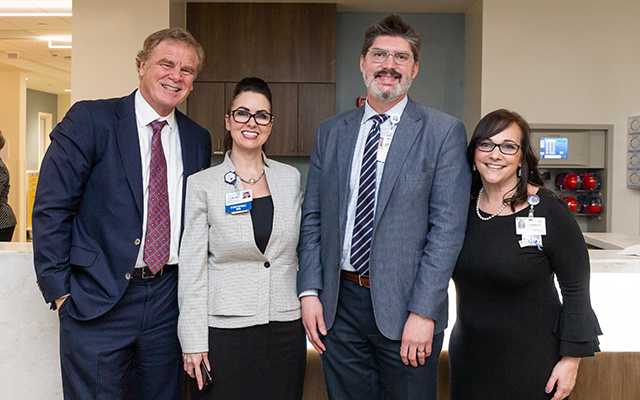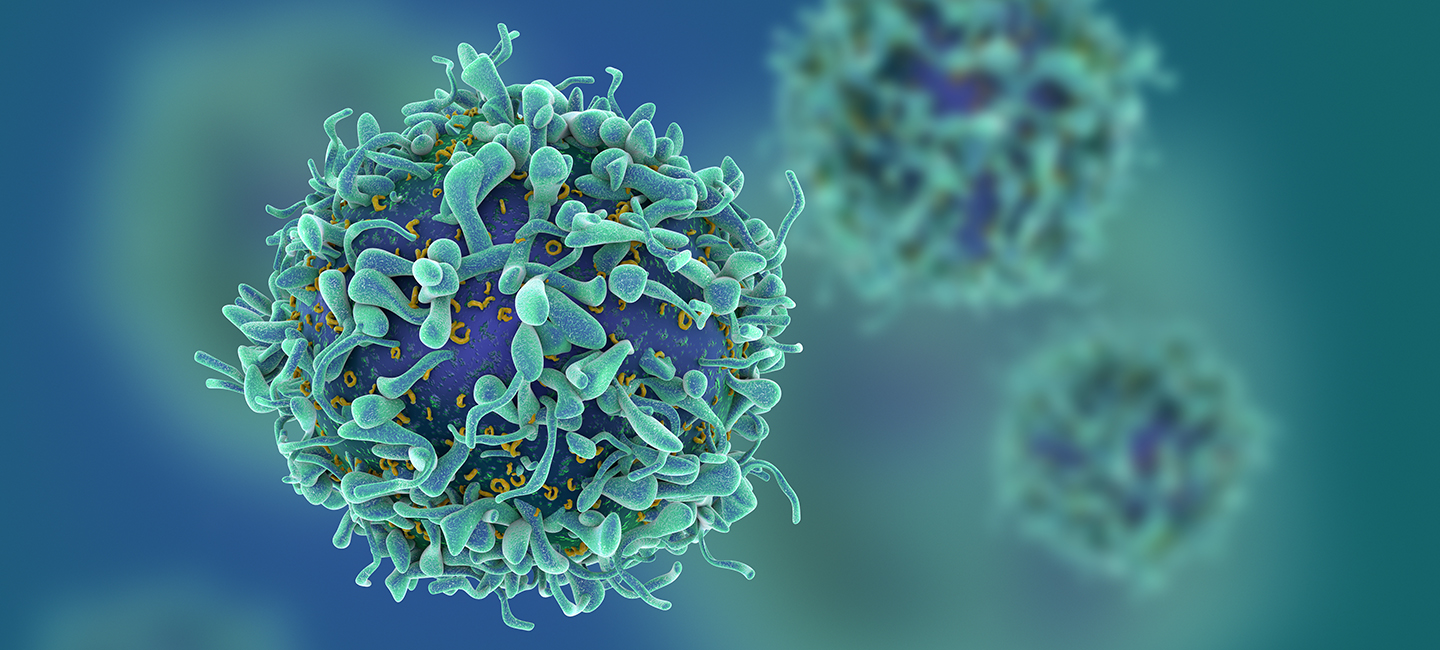New Moffitt Unit is Completely Dedicated to Immune Cell Therapy
For nearly five years, Moffitt Cancer Center has been at the forefront of a new personalized therapy that uses a patient’s own cells to combat cancer. Now, patients treated through this form of immunotherapy will have their own unit on Moffitt’s Magnolia Campus dedicated to their personalized care.
“This therapy has been a game-changer for patients with large B cell lymphoma who have failed two or more lines of therapy,” said Dr. Frederick Locke, vice chair of the Blood and Marrow Transplant and Cellular Immunotherapy Department and co-leader of the Immunology Program at Moffitt.

A grand opening for the new ICE-T clinic was held on January 29 at Moffitt.
The new unit will focus on cellular immunotherapies such as chimeric antigen receptor T-cell therapy (CAR T), which reengineers a patient’s own immune cells to fight cancer. For this treatment, the patient’s T cells are removed and modified with additional receptors to help identify, attack and ultimately destroy the cancer cells. The re-engineered T cells are then infused back into the patient’s body in a single treatment, enabling the body’s immune system to better combat the disease.
The Moffitt Immune Cell Therapy (ICE-T) unit has 12 inpatient beds and eight treatment bays for outpatient visits. The cancer center hired additional staff to man the new unit alongside veteran members of Moffitt’s Blood and Marrow Transplantation program, where CAR T therapy began with the first clinical trials in 2015.
The state-of-the-art ICE-T unit will give patients and their caregivers a better treatment experience, according to Crystal Mock, MSN, RN, MBA, the patient care manager of ICE-T.
“The combined inpatient and outpatient unit will provide our patients with the best continuity because their therapy will be in the same general area with the same team members throughout their continuum of care,” explained Mock.
Mock said before a patient can receive cellular therapy, they are given chemotherapy to kill of cells to make room for the new super-charged immune cells. Previously, this treatment occurred in Moffitt’s infusion center. Now cellular therapy patients can receive their chemotherapy in the outpatient area of the new ICE-T unit, and then when it is time for therapy they will be admitted to the inpatient side of the clinic for treatment and recovery.
“The same physicians, APPs, nurses, techs and secretaries will see them from beginning to end,” she said. “This will allow us to develop stronger relationships with our patients and caregivers, which in turn will allow us to better anticipate their needs, communicate better as a team and deliver the best evidence-based care and best outcomes for our patients.”
Cellular immunotherapy can be used to treat several different types of cancer. One specific therapy, CAR T, has proved to be successful in treating blood cancers, such as acute lymphoblastic leukemia and diffuse large B-cell lymphoma. However, clinical trials are underway to expand its use to other blood malignancies, such as multiple myeloma.
Moffitt was the first to provide commercially available Yescarta after FDA approval in October of 2017. When the FDA expanded use of Novartis’ Kymriah to this patient population on April 30, 2018, Moffitt became the first Florida center to offer both CAR T choices to patients. In 2019 alone, nearly 100 patients have been treated with CAR T at Moffitt.



